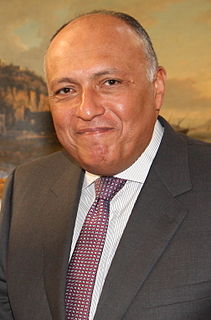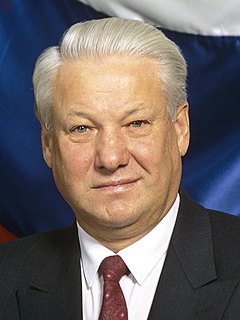A Quote by Abby Martin
I can't stress enough how strongly I am against any state intervention in a sovereign nation's affairs.
Related Quotes
I do not exclude this, but I would like to draw your attention to one absolutely key aspect: In line with international law, only the U.N. Security Council can sanction the use of force against a sovereign state. Any other pretext or method which might be used to justify the use of force against an independent sovereign state is inadmissible and can only be interpreted as an aggression.
How can you have the religion of the sovereign be the religion of the state if the sovereign belongs to many religions? And it's at that point, I think, historically, that you start to see people saying maybe the state should not associate itself with any religion. Maybe there shouldn't be any official religion.
The withdrawal of a State from a league has no revolutionary or insurrectionary characteristic. The government of the State remains unchanged as to all internal affairs. It is only its external or confederate relations that are altered. To term this action of a Sovereign a 'rebellion' is a gross abuse of language.
Louis XIV was very frank and sincere when he said: I am the State. The modern statist is modest. He says: I am the servant of the State; but, he implies, the State is God. You could revolt against a Bourbon king, and the French did it. This was, of course, a struggle of man against man. But you cannot revolt against the god State and against his humble handy man, the bureaucrat.
Law itself is either suspended, or regarded as an instrument that the state may use in the service of constraining and monitoring a given population; the state is not subject to the rule of law, but law can be suspended or deployed tactically and partially to suit the requirements of a state that seeks more and more to allocate sovereign power to its executive and administrative powers. The law is suspended in the name of "sovereignty" of the nation, where "sovereignty" denotes the task of any state to preserve and protect its own territoriality.
I should much rather see reasonable agreement with the Arabs on the basis of living together in peace than the creation of a Jewish state. My awareness of the essential nature of Judaism resists the idea of a Jewish state with borders, an army, and a measure of temporal power, no matter how modest. I am afraid of the inner damage Judaism will sustain—especially from the development of a narrow nationalism within our own ranks, against which we have already had to fight strongly, even without a Jewish state.

































